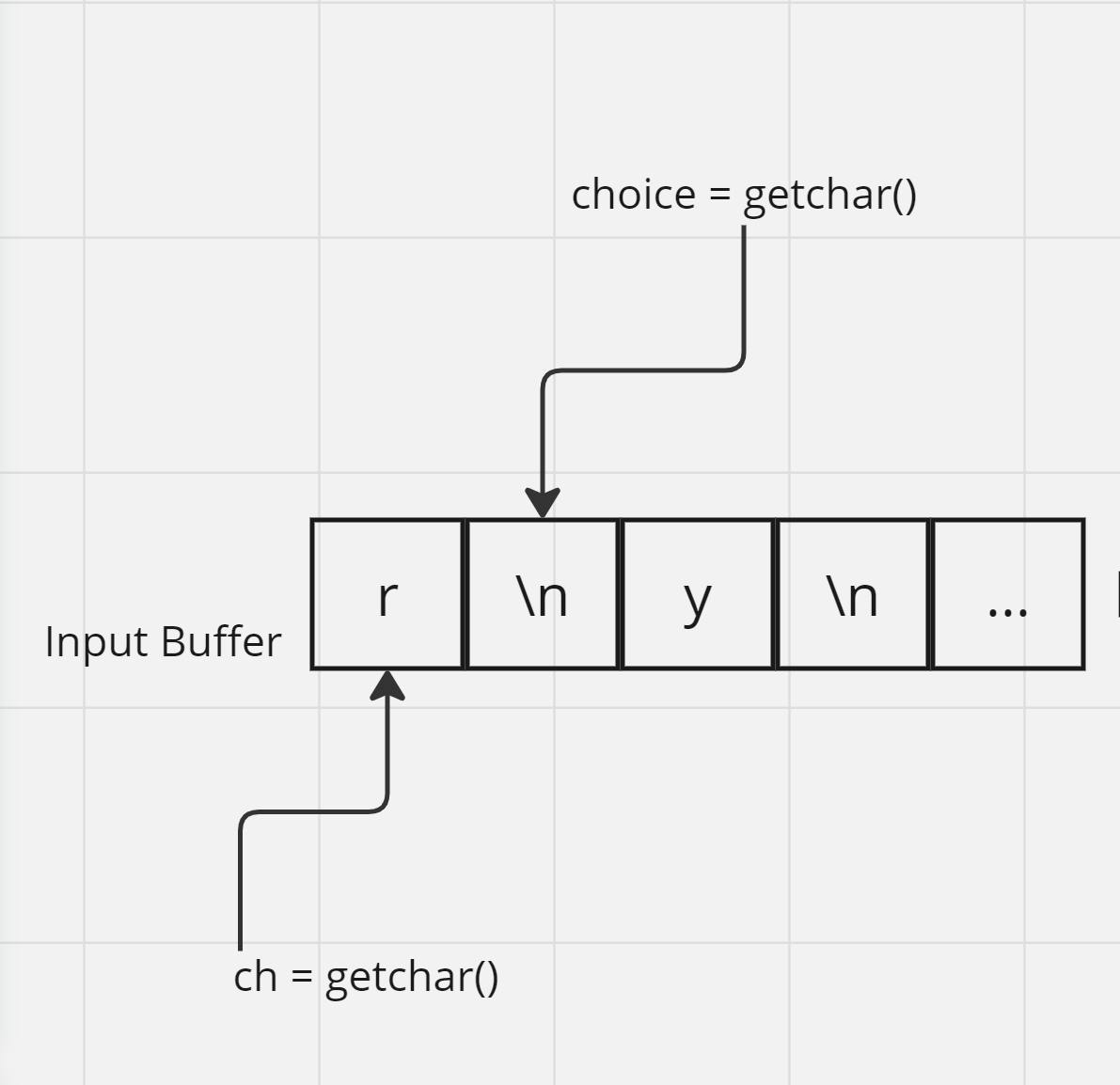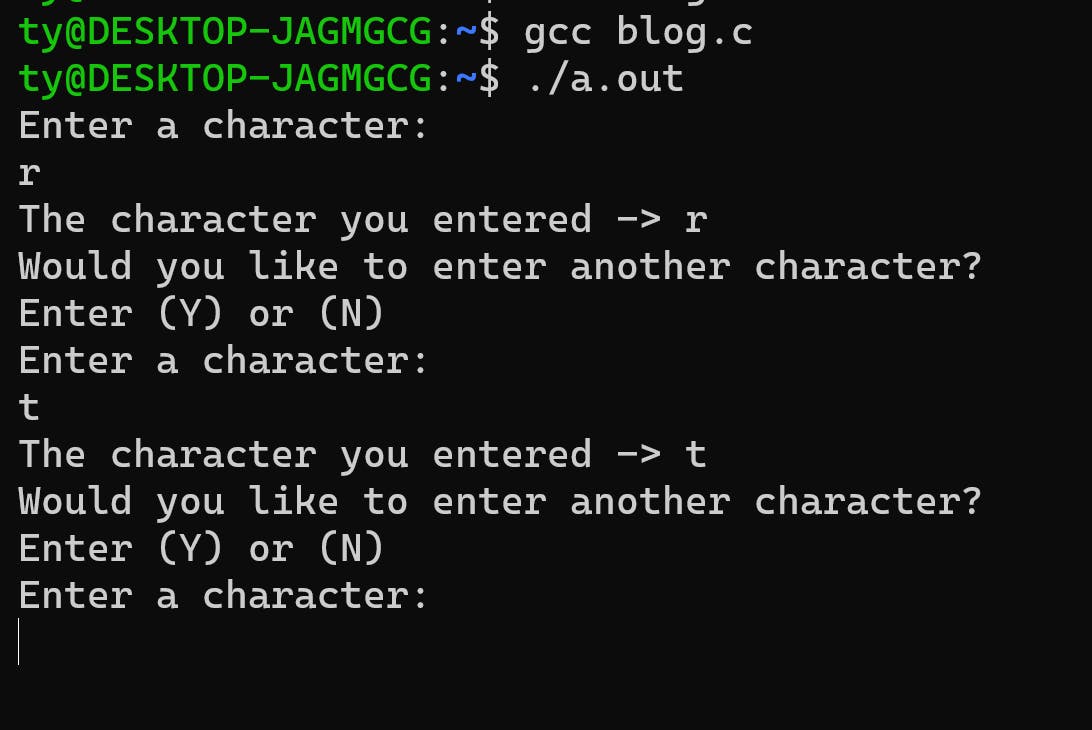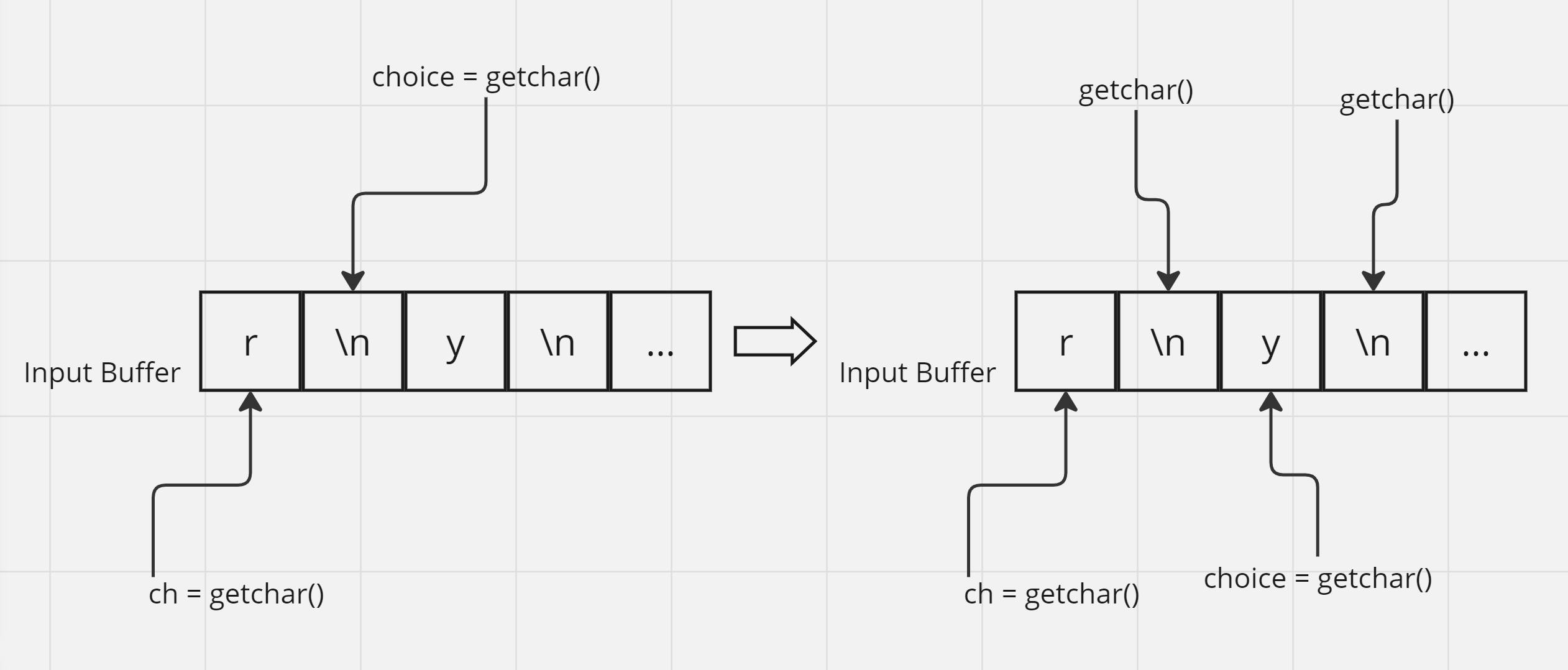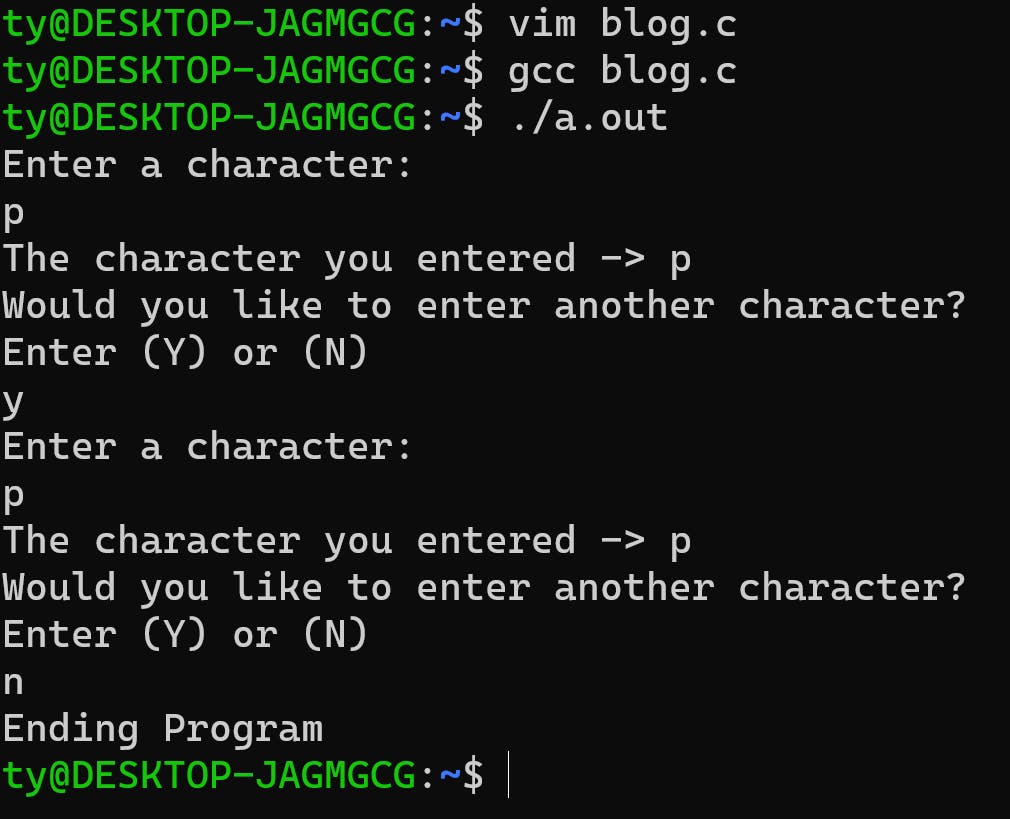As dedicated programmers committed to delivering optimal user experiences, our journey is marked by a relentless pursuit of excellence, occasionally accompanied by a bug or two—a common phenomenon in the intricate world of C programming.
This article aims to unravel a particular challenge: unexpected skipping or premature termination of a program when reading character inputs from the terminal.
At times, we seek user choices utilizing the getchar() function, intending to involve users in decision-making processes. Users provide character inputs, and our code, guided by conditional statements, is designed to respond accordingly. Yet, it occasionally exhibits unexpected behaviour, skipping lines or persistently defaulting to predetermined decisions, neglecting the user input.
Let's delve into a straightforward example to illustrate this issue.
The code below creates a simple interactive console program that prompts users to enter a character. After receiving the character, it prints the entered character and asks the user if they want to enter another character. The user can respond with Y or N. If the response is N or n, the loop terminates, and the program prints "Ending program".
int main(void)
{
char ch, choice;
int choice_int = 1;
while (choice_int)
{
puts("Enter a character:");
ch = getchar();
printf("The character you entered is -> %c\n", ch);
puts("Would you like to enter another character?\n (Y) or (N)");
choice = getchar();
if (choice == 'n' || choice == 'N')
choice_int = 0;
else
choice_int = 1;
}
puts("Ending program");
return(0);
}
From a distance, the code appears flawless, compiling without error. However, upon executing the program, an unexpected behaviour surfaces. The user is prompted to enter a character, yet upon input, the program unexpectedly skips the stage where the user is meant to enter a choice character. This anomaly leads to an endless loop, depriving the user of a graceful program termination and requiring a forceful exit (via Ctrl + C) at the terminal.
The root of this issue lies in the code's failure to pause and request the choice character after reading ch and the culprit is a lingering newline character \n in the input buffer. This character is a part of the Enter keypress and remains in the input buffer - a designated memory address for data transfer (I/O) - connected to stdin.

Consequently, when the next getchar() is encountered, specifically during the assignment of the choice variable, it perpetually stores the newline character in choice.

To rectify this behaviour, an additional getchar() should be introduced after the initial character input, effectively consuming the newline character before reading the choice variable. Furthermore, after obtaining the choice variable, any residual newline characters lingering in the input buffer from the user's Enter keypress should be similarly consumed.
int main(void)
{
char ch, choice;
int choice_int = 1;
while (choice_int)
{
puts("Enter a character:");
ch = getchar();
getchar(); //consumes first \n character
printf("The character you entered is -> %c\n", ch);
puts("Would you like to enter another character?\n (Y) or (N)");
choice = getchar();
getchar(); //consumes second \n character
if (choice == 'n' || choice == 'N')
choice_int = 0;
else
choice_int = 1;
}
puts("Ending program");
return(0);
}

This nuanced adjustment ensures that after reading the ch and choice variables, the newline character is consumed, and the program pauses as expected for the user input, facilitating seamless interaction and enhancing the user experience by allowing a smooth and expected termination of the program.
